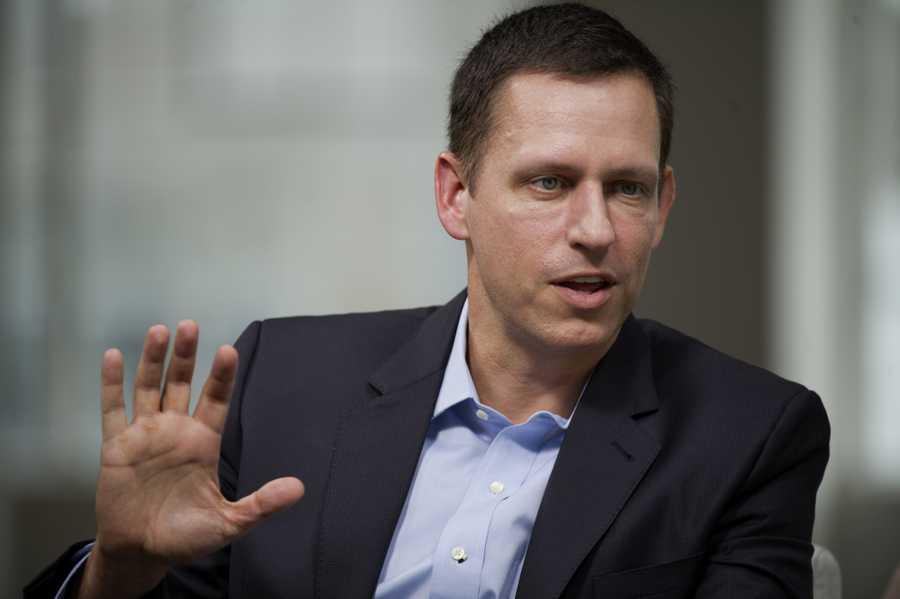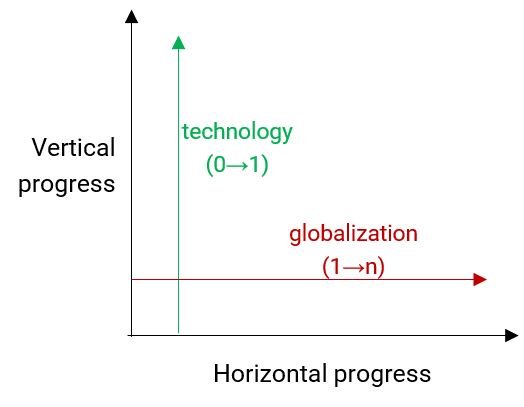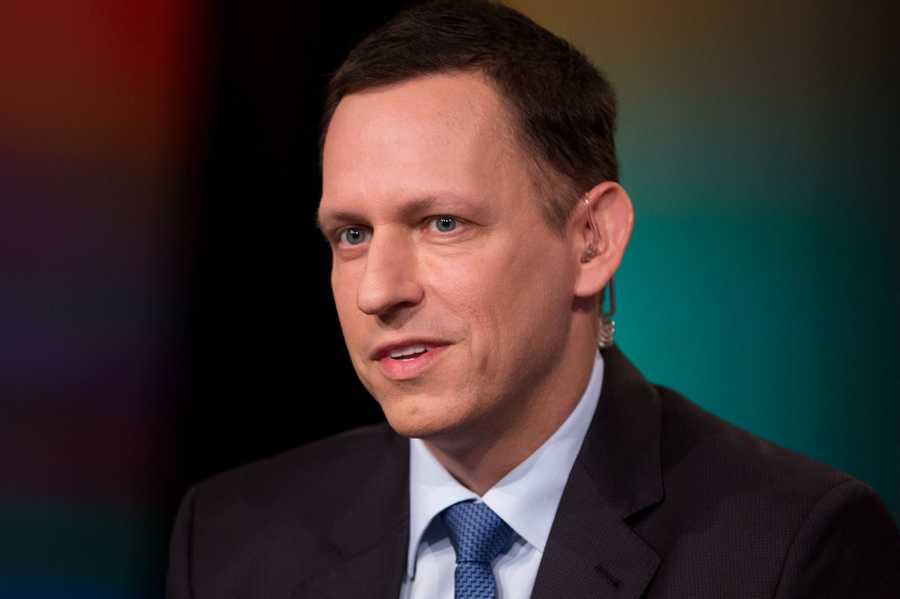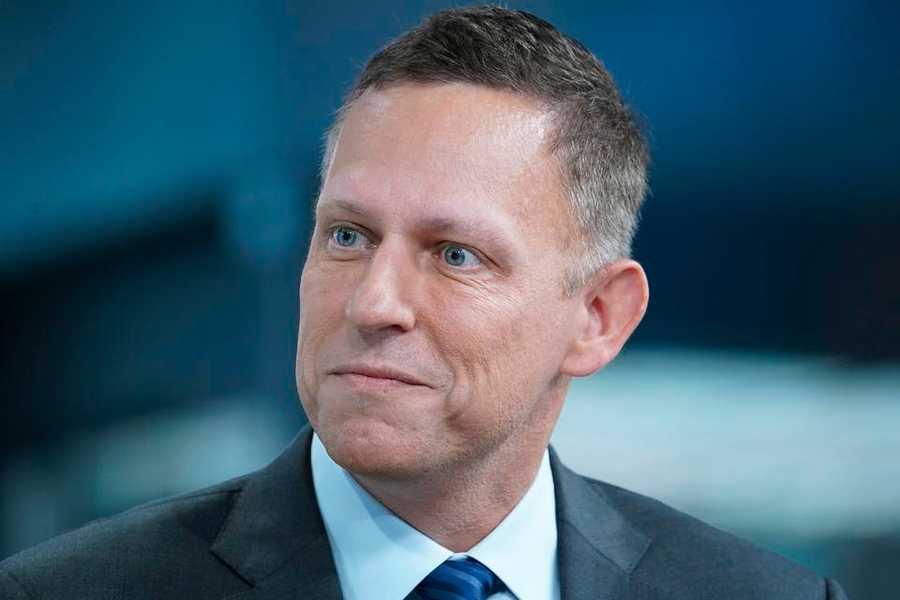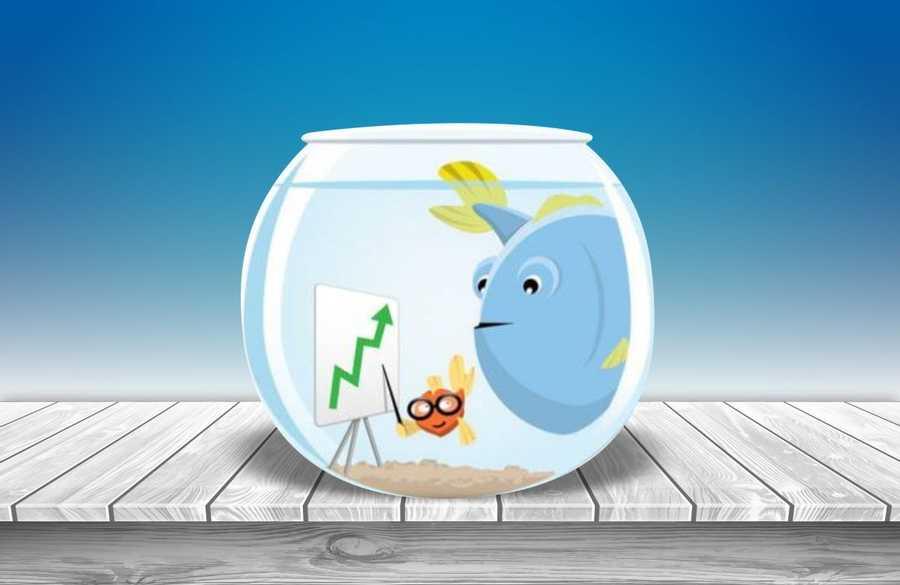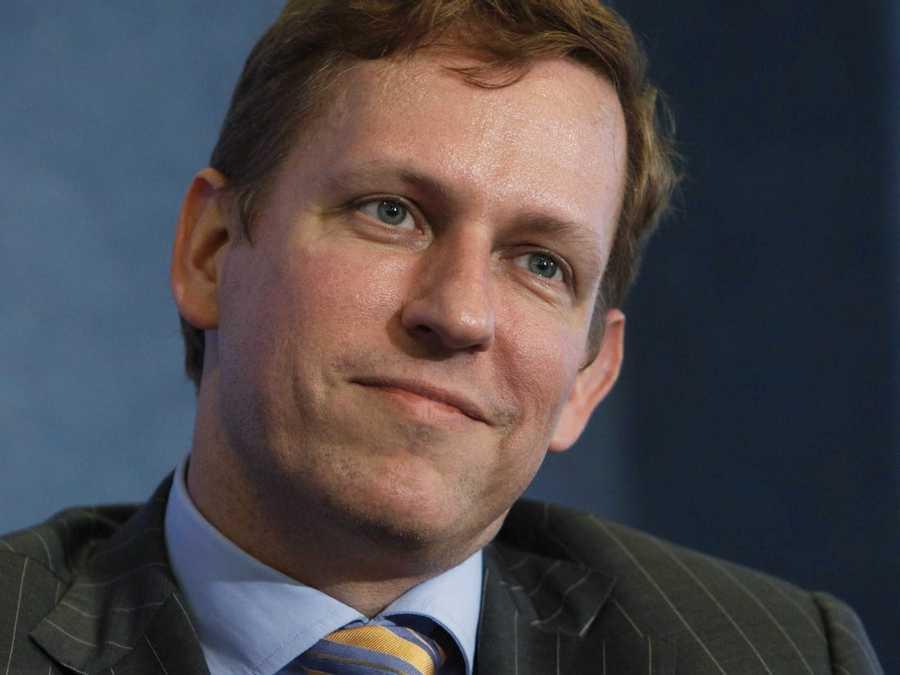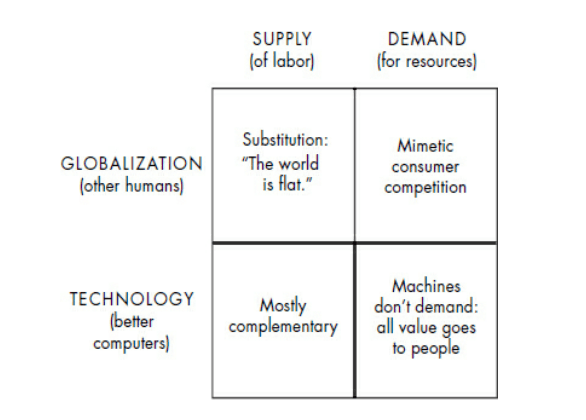Liviu Lica's Key Ideas from Zero to One
by Blake Masters, Peter Thiel
Ideas, facts & insights covering these topics:
17 ideas
·138K reads
942
6
Explore the World's Best Ideas
Join today and uncover 100+ curated journeys from 50+ topics. Unlock access to our mobile app with extensive features.
Zero to One is about how to build companies that create new things
The book draws on Thiel's experience as a co-founder of PayPal and Palantir, investor in hundreds of startups, including Facebook and SpaceX. Thiel cautions the book offers no formula for success. Such a formula cannot exist as every innovation is new and unique.
The most powerful pattern he has noticed is that successful people find value in unexpected places, and they do this by thinking about business from first principles instead of formulas.
1.68K
15.3K reads
Zero to One explained
Progress can take one of two forms:
- Going from 1 to n: horizontal or extensive progress means copying things that work -. Horizontal progress is easy to imagine because we already know what it looks like.
- Going from 0 to 1: Vertical or intensive progress means doing new things. Vertical progress is harder to imagine because it requires doing something nobody else has ever done.
Example: If you take one typewriter and build 100, you have made horizontal progress. If you have a typewriter and build a word processor, you have made vertical progress..
1.82K
12K reads
Positively defined, a startup is the largest group of people you can convince of a plan to build a different future.
PETER THIEL
1.63K
12.8K reads
Think for yourself
"The most contrarian thing of all is not to oppose the crowd but to think for yourself.". Is the advice given throughout the book.
Thiel encourages to think different, but most of all to think for yourself.
1.68K
11.1K reads
Capitalism and competition are opposites
Thiel argues capitalism and competition are opposites.
Capitalism is premised on the accumulation of capital, but under perfect competition all profits get competed away.
Because creating value is not enough, you also need to capture some of the value you create.
The lesson for entrepreneurs is clear: if you want to create and capture lasting value, don’t build an undifferentiated commodity business.
1.64K
9.46K reads
New and unique versus more of the same
PayPal was in 2001 the only email-based payments company in the world. It employed fewer people than the restaurants on Castro Street (Mountain View, CA), where the Paypal team used to go for lunch. The business was much more valuable than all of those restaurants combined.
Starting a new restaurant is a really hard way to make money. If you lose sight of competitive reality and focus on trivial differentiating factors, maybe you think your naan is superior because of your great-grandmother’s recipe, your business is unlikely to survive.
1.59K
7.79K reads
“All happy families are alike; each unhappy family is unhappy in its own way.”
The quote with which Tolstoy opens Anna Karenina might describe people, but for businesses it's the opposite: All happy companies are different: each one earns a monopoly by solving a unique problem. All failed companies are the same: they failed to escape competition.
1.74K
8.45K reads
1.61K
9.04K reads
Characteristics of successful monopolies
Every monopoly is unique, but they usually share some combination of:
- Proprietary technology: a good rule of thumb, proprietary technology must be at least 10 times better than its closest substitute in some important dimension to lead to a real monopolistic advantage.
- Network effects: keep in mind that you’ll never reap network effects unless your product is valuable to its very first users when the network is necessarily small.
- Economies of scale: A good startup should have the potential for great scale built into its first design.
- Branding
1.73K
6.22K reads
Start with a small market and dominate
Every startup is small at the start. Every monopoly dominates a large share of its market. Therefore, every startup should start with a very small market.
The perfect target market for a startup is a small group of particular people concentrated together and served by few or no competitors.
As you craft a plan to expand to adjacent markets, don’t disrupt: avoid competition as much as possible.
1.76K
6.02K reads
Recruit the right people
Why would someone join your company as its 20th engineer when she could go work at Google for more money and more prestige?
You’ll attract the employees you need if you can explain why your mission is compelling: not why it’s important in general, but why you’re doing something important that no one else is going to get done.
Just cover the basics like health insurance and then promise what no others can: the opportunity to do irreplaceable work on a unique problem alongside great people.
1.65K
5.23K reads
A startup or a cult?
The best startups might be considered slightly less extreme kinds of cults. The biggest difference is that cults tend to be fanatically wrong about something important.
People at a successful startup are fanatically right about something those outside it have missed.
1.6K
5.91K reads
Technology Means Complementarity
The stark differences between man and machine mean that gains from working with computers are much higher than gains from trade with other people.
We don’t trade with computers any more than we trade with livestock or lamps.
1.55K
5.72K reads
Seven questions that every business must answer
- The Engineering Question: can you create breakthrough technology instead of incremental improvements?
- The Timing Question: is now the right time to start your particular business?
- The Monopoly Question: are you starting with a big share of a small market?
- The People Question: do you have the right team?
- The Distribution Question: do you have a way to not just create but deliver your product?
- The Durability Question: will your market position be defensible 10 and 20 years into the future?
- The Secret Question: have you identified a unique opportunity that others don’t see?
1.96K
4.83K reads
Myths are important and dangerous
The single greatest danger for a founder is to become so certain of his own myth that he loses his mind.
But an equally insidious danger for every business is to lose all sense of myth and mistake disenchantment for wisdom.
1.54K
5.06K reads
Our task: go from 0 to 1
Our task today is to find singular ways to create the new things that will make the future not just different, but better - to go from 0 to 1.
The essential first step is to think for yourself. Only by seeing our world anew, as fresh and strange as it was to the ancients who saw it first, can we both re-create it and preserve it for the future.
1.63K
4.94K reads
IDEAS CURATED BY
Curious about different takes? Check out our Zero to One Summary book page to explore multiple unique summaries written by Deepstash users.
Liviu Lica's ideas are part of this journey:
Learn more about startup with this collection
How to start a successful business
How to build a strong team
How to market your business
Related collections
Different Perspectives Curated by Others from Zero to One
Curious about different takes? Check out our book page to explore multiple unique summaries written by Deepstash curators:
12 ideas
Talha Mumtaz ✔️'s Key Ideas from Zero to One
Peter Thiel, Blake Masters
10 ideas
Girish Botale's Key Ideas from Zero to One
Blake Masters
1 idea
Thijmpie wijmpie Wimpie dimpie Wimpie dimpie's Key Ideas from Zero to One
Peter Thiel, Blake Masters
Discover Key Ideas from Books on Similar Topics
8 ideas
The Black Swan
Nassim Nicholas Taleb
24 ideas
Skin in the Game
Nassim Nicholas Taleb
11 ideas
"F*ck You" Money
youngmoney.co
Read & Learn
20x Faster
without
deepstash
with
deepstash
with
deepstash
Personalized microlearning
—
100+ Learning Journeys
—
Access to 200,000+ ideas
—
Access to the mobile app
—
Unlimited idea saving
—
—
Unlimited history
—
—
Unlimited listening to ideas
—
—
Downloading & offline access
—
—
Supercharge your mind with one idea per day
Enter your email and spend 1 minute every day to learn something new.
I agree to receive email updates
